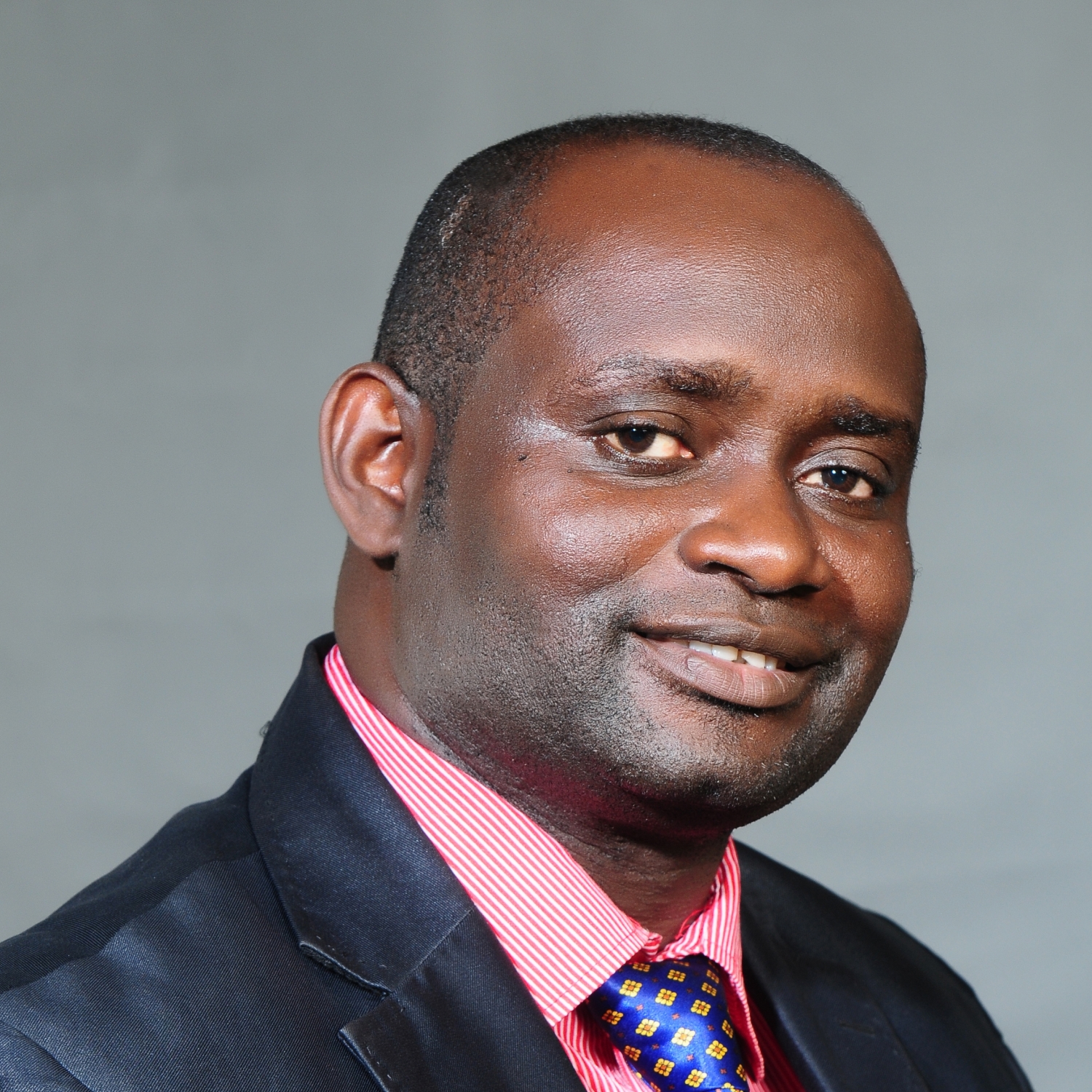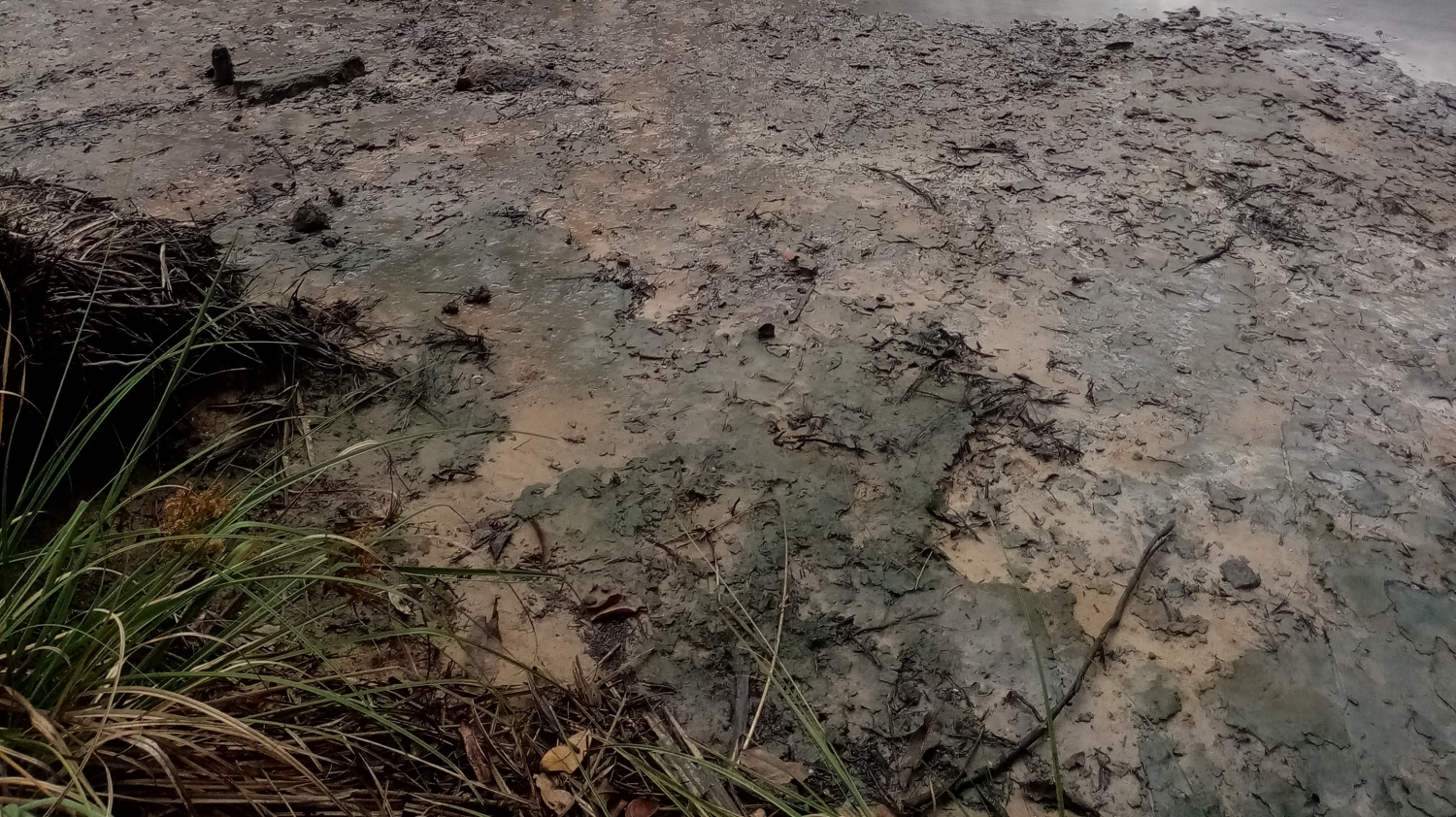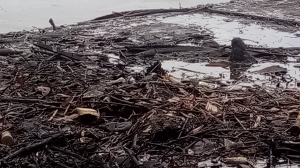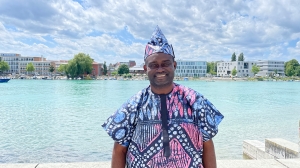Can music fight pollution?

Nigeria is one of the leading oil and gas producers in Africa today. Does this also make it a rich country? “Nigeria is both rich and poor at the same time”, says Olusegun Stephen Titus, a leading scholar of ecomusicology in Africa. “There is a lot of oil, gas and other natural resources in the country; but the profits from these go into a few pockets whereas the living conditions of the majority of people are very poor.”
The oil industry in the Niger Delta has been run by joint ventures between the Nigerian government and international oil companies for decades. “While millions of Nigerians live at or below the extreme global poverty line of US$ 2.15 per person per day, a few parties, such as government officials or foreign companies, have unbelievable riches – so much money that they cannot keep it in banks but hide it in water tanks or bury it in the ground instead,” says Titus and laments a culture of corruption: “Everything else degrades – roads get worse and are not repaired, causing many fatal accidents. Kidnapping has become a profitable business, so people no longer have a sense of safety. And ecological disasters destroy plants and animals and jeopardize human health as well.”
Oil spills have a devastating impact on the ecosystem, not only in terms of offshore spillages. Large areas of mangrove forests have been destroyed; spills have contaminated rivers, soil and ground water. With land no longer usable for farming, people live with hunger every day. And the practise of gas flaring pollutes the air, releasing a variety of potentially poisonous chemicals. Titus has travelled the country and witnessed ecological devastation. “In Port Harcourt, which is called oil city, the air is so smoggy nobody would ever dry laundry outside,” he says.
© Olusegun Stephen TitusPolluted bank of Boodoo river in one of the Ogoni communities
Protesting for environment protection
For decades, the extensive pollution has led to conflicts and protests. Titus relates:

“Protesters complain, for example, ‘Our land is spoilt by the federal government, the elites and multinational oil companies.’ But the federal government’s promises to share 13% of the profits with the oil producing states have yet to reach everyday people. Pollution and hardship have led to peaceful protests. But in the 1980s and 1990s the then head of state killed some of the protesting leaders through hanging and had others jailed. This led to several uprisings and unrest in the Niger Delta.”
Olusegun Stephen Titus
Where does music come in? Singers are also victims of extractivism and the ensuing pollution. “The artists want to create a global awareness for the problems in Nigeria. They want to use music as a means of protest,” Titus explains. “But protesters and singers are not safe from persecution. One of the most famous, founder of Afro-beat Fela Anikulapo Kuti, was attacked and jailed a couple of times for using songs to call out corruption and the stealing of oil money.”
The power of music
Nevertheless, as the ecomusicologist points out, their music reached scores of people. Some singers like Nneka Lucia Egbun and Ubrei-Joe Jeru performed as part of the protests, other protests such as Occupy Nigeria 2012 and ENDSARS 2019 were organized as concerts from the outset, with thousands of people gathering in a field. The Nigerian government reacted by banning songs criticizing the government and ecocide, from the media channels, but could not prevent their spread online. Besides, traditional music from Nigeria and Africa is often functional, that is, performed to mark a ritual like a wedding or a funeral. So, musicians like those performing the Koromuu traditional music of the Ogoni people have started to put in some songs about oil spillage when they perform at ceremonies, just as a strategy to be heard.
“Like poetry, drama, writing and dance performance, music can be used as a weapon and an appeal to fight against pollution.”
Olusegun Stephen Titus
Titus asserts and sings a tune by Nneka Lucia Egbuna: “They are taking our oils always, I will no longer be silent.” In his research, Titus covers different genres such as pop, Afro beat, reggae, blues, folk and gospel, characterizing the soundscapes of various songs: “Some musical instruments are used to create a wailing sound, imitating wailing people or suffering forests, fish and birds. For instance, dissonance often stands for hopelessness, heavy and loud thundering sounds can represent chaos.”
© Olusegun Stephen TitusA disaster provided the catalyst for Titus’s ecological engagement and research. In August 2011, the city of Ibadan where he did his PhD in music was hit by a flood that killed 102 people and left 600 more homeless. “I almost drowned,” he recounts, “and my miraculous survival was a sign for me to shift my focus to ecomusicology. Since then, I’ve worked to educate people and policymakers on how important the environment is for everybody to survive.”
“The wellness of the trees will give wellness to the birds.”
Titus’s approach is ethnographic fieldwork, interviewing musicians and joining communities to find out what emotions that music evokes and how it conveys ecological problems to them. Most of the songs he studies deal with similar issues: the loss of habitat – animals and plants becoming extinct –perpetual poverty, and the slow violence against human health due to environmental pollution. “Traditionally, Nigerian people have a form of indigenous ecological knowledge that they also express in music, in chants. For instance, in my mother tongue Yoruba there is a tradition saying ’Irorun igi ni irorun Eye‘: the wellness of the trees will give wellness to birds. This is about eco-complementarity and means: If you mistreat others, you cannot be fine yourself. Human and non-human beings like birds and plants need each other. And Nigerian people readily connect to that knowledge.”
Has music induced government policies to change for the better?
“I think, the desired level of awareness has not been fully reached yet,” Titus estimates.
“At least, a policy of clean-up has been conceived and proclaimed as an answer to demands articulated in some of the Niger Delta songs, most especially the songs of Ubrei-Joe Jeru and Nneka Lucia Egbuna. But the implementation has not started yet, the whole issues of remediation and clean-up are still only a political statement.”
Olusegun Stephen Titus
He sums up that most positive political actions – if taken at all – were short-termed or supported only a few people. “Sometimes the government gives some money, to help a few youths, especially those they see as vocal and militant among the Niger Delta youth. But, over the long term, the atrocities continued. Another strategy was to send protesters to universities abroad to get them out of the country – which, however, gave at least a few young people a future perspective.” Titus does not give up hope because he knows this will be a long-term mission. And he has started to compose (eco-)music himself.
https://www.youtube.com/watch?v=Z3QEEwBvp7Q
© Christine von NellOriginally based at Obafemi Awolowo University (Ile-Ife, Nigeria), Olusegun Stephen Titus arrived at the University of Konstanz (Departmental Section of British and American Studies) on a Humboldt foundation fellowship in April 2023. Titus is a leading scholar of ecomusicology in Africa and currently working on the project “Ecomusicology: the Politics of Oil, Extractive Infrastructure, Forced Migration, Displacement and Music Activism in the Niger Delta of Nigeria”. In a nutshell, Titus traces the trajectories of African music in relation to ecological and social degradation in some African countries such as Nigeria, South Africa, Niger, Zambia, Sudan and Ghana. In 2021, he founded the African Ecomusicology Society.
Header image: View of oil production in Niger Delta, photo: Sara Leigh Lewis; no changes made; license: https://creativecommons.org/licenses/by-sa/4.0/deed.en



